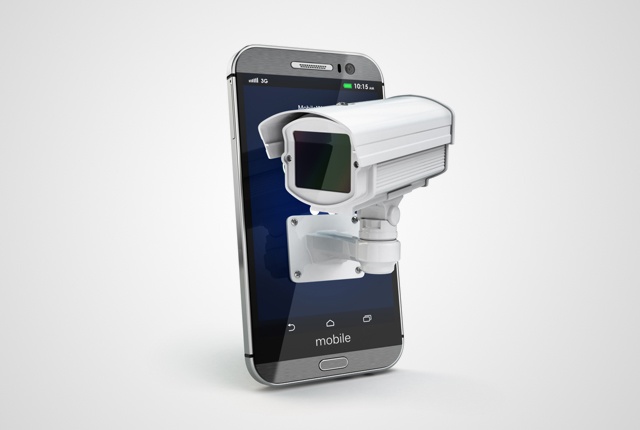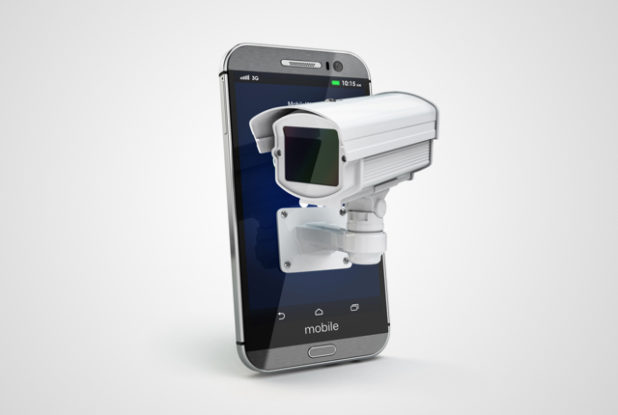Pomidor Quixote
Daily Stormer
March 3, 2019
Shit’s real, guys. We’ve all noticed the kind of things that prompted this Daily Mail reporter to investigate smartphones and how they spy on people.
It was after having dinner with a friend in London’s Canary Wharf that I first became suspicious.
We had settled into our seats and arranged our belongings – my iPhone placed in front of me on the table, as usual – when I noticed my companion was struggling to read the menu without glasses.
‘I thought you’d had laser eye surgery?’ I asked. ‘Yes,’ she replied. ‘But it only works for long distance.’
It was a mundane conversation between friends, just like any other that takes place at countless dinner tables across Britain – but one which, in fact, turned into something altogether more unsettling.
Within hours, I used my mobile to scroll through my Facebook account and, with growing unease, noticed adverts for LASIK laser eye surgery and a selection of spectacles from LadyBoss glasses appearing alongside the usual updates from friends.
I don’t even wear glasses myself. Surely, I thought, it must be a coincidence? And yet the timing felt troubling.
Could it be possible that our phones are somehow eavesdropping on our conversations – and that key phrases are being logged and used to send us targeted adverts? The implications, if true, are chilling.
We are obsessed with our phones. They accompany us to our most personal spaces – our homes, our bedrooms and bathrooms – are privy to our most intimate of conversations and are used for all aspects of our business, personal and financial lives.
But what I discovered over several days of investigation reveals what can only be described as a frightening new chapter in our relationship with these devices.
To me, there is no doubt: the microphones on our phones are indeed listening to our everyday lives.
We do not even have to be using our phones to make a call for them to eavesdrop. Unless the microphone is disabled, they appear to be able to pick up words and phrases and translate them into related adverts which then appear in apps such as Instagram and Facebook.
…
I carried my iPhone with me at all times over the course of a week. It was always switched on and close enough to me for it to be able to ‘hear’ any conversations.
One day, I visited my GP for an NHS check-up, and she booked me for a blood test. By the time I was back with the nurse to take my blood, I had received an offer on Facebook from private firm Thriva offering me a ‘blood test today’.
From there, I met a friend for lunch. I’d decided to purposely discuss obscure subjects so that my previous internet search history wouldn’t interfere with any new ads.
The friend told me about his love of photography. He was going to Heathrow to photograph a British Airways Boeing 757 landing and we discussed buying camera lenses.
This time, I got ads on both my Facebook and Instagram accounts from airlines AND photography companies. I hadn’t searched for either online. One ad told me ‘You don’t need to be tech savvy to edit photos’, and even showed a picture of an aeroplane.
Finally, I showed a friend a book of prints by a 19th Century artist called Aubrey Beardsley, which my father had discovered in a library that burnt down during the Second World War. I have two of his prints on my wall.
Despite never Googling the artist, you can probably guess what happened next. An advert appeared on my Instagram for the Victoria and Albert Museum with a similar image they have in their collection.
To be absolutely certain my phone was eavesdropping, I left it next to the radio and tuned into Italian news network Radio 24. Bingo.
The following day, my Instagram was full of dozens of Italian adverts, including one for an exhibition, another for a singer’s new album and various Italian holiday offers.
But that wasn’t the full extent of my phone’s espionage. It was also, I discovered, spying on my pictures.
A friend sent me a picture on WhatsApp of a £1,190 Chloe Nile leather cross-body bag that she had seen in Selfridges. I had never Googled or looked up the bag myself. It was too expensive for me, so I replied: ‘I wonder if we could find a replica.’
Days later, a similar bag popped up in an advert on my phone, priced at a far more realistic £39.99. Surely not another coincidence?
…
Most people will already know that, when they use a search engine or visit certain websites, they can expect to be targeted by related adverts in their internet browser.
But the idea that our conversations, and photographs are being collected is a different prospect entirely.
I got in touch with Dr Vitor Jesus, senior lecturer in cyber-security and privacy at Birmingham University. ‘I’m not surprised by the sequence of events you experienced,’ he told me.
‘Every time you download an app and give it permission to access personal information, whether it be photographs, contacts or microphone, you open yourself to being targeted.
…
‘There is no such thing as a free app. And at the moment, because users are technically giving permission, it is not illegal.’
This ‘permission’ is tacitly given because the microphones on most people’s phones are always left on. The phones are pre-programmed to listen for ‘trigger’ phrases which activate personal assistant apps such as Siri or Alexa.
This means that many other apps could be using the same technology without the phone owner’s knowledge.
Dr Jesus said: ‘It is entirely possible to have multiple apps listening in the background all the time, with each being triggered by keywords.
‘Your details are then passed on to the relevant companies who will bombard you with adverts.’
…
Of course, our phones are not the only devices with microphones or built-in cameras. Our other ‘smart’ household devices – designed to make modern life more efficient – may have a darker side, too.
From TVs and Alexa assistants to baby monitors, fridges and smart meters, reports have shown that such gadgets have the ability to record people without their permission.
Whether these companies are just using this to show people ads or if they’re also doing more malevolent things is not the real issue here. The real issue here is that smartphones can do this stuff and that they’re actually doing this stuff, which means smartphone makers or the makers of the smartphones’ operating system can do this stuff without the knowledge of smartphone users.
Think about it. Smartphones can listen to everything you say and analyze every picture and every chat log, they know what pages you visit, where you go, how many time you are in any given place, your walking speed, who your friends are, who you meet with, and so many other things about you.
It would be very stupid not to use these extremely powerful surveillance devices to advance your agenda if you had control over them, and kikes do have control over them.
Google makes Android and Google is Jewish, Apple makes iOS and Apple is gay, which means Apple is also Jewish, and Jews have access to hardware manufacturers either through their money or their “national security” contacts in the government.
Why wouldn’t Jews use smartphones to spy on the goyim? There’s no downside to it.
What are the goyim going to do? Make their own Android? Make their own hardware?
You have to assume your smartphone is literally spying on you for the kikes, even if it currently isn’t.
This doesn’t mean that you shouldn’t use smartphones — you can use them if you want to or need to, as they can be quite useful — but it means that you should be careful about what you do with them and what you show them. Try to hide your power level from them.
You have to think about this long term, you know? They could be currently collecting all kinds of information about you to use in the future.
You can choose what they can collect, but you can’t really do that reliably through app permissions; you have to do it old school.




